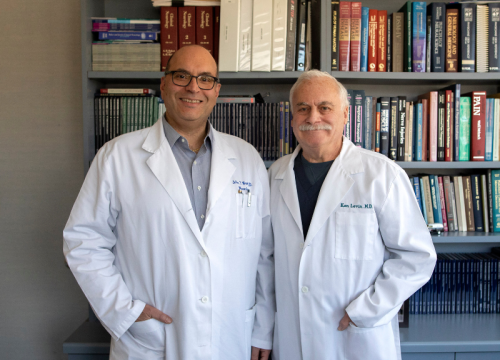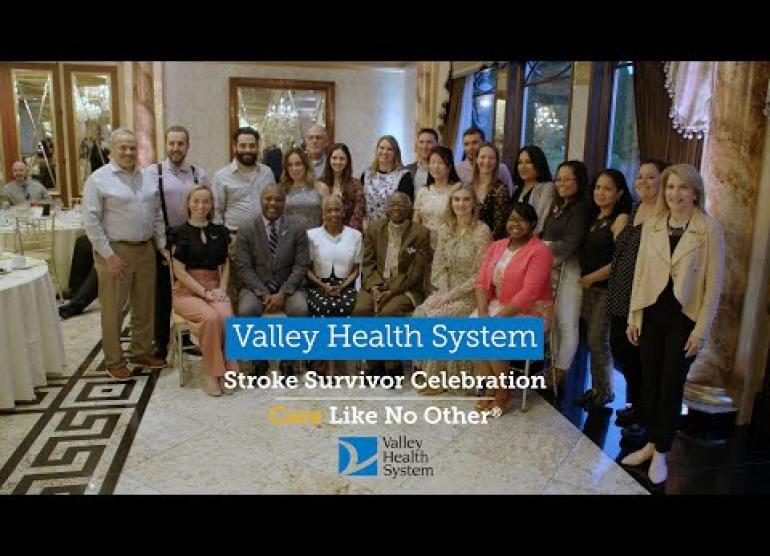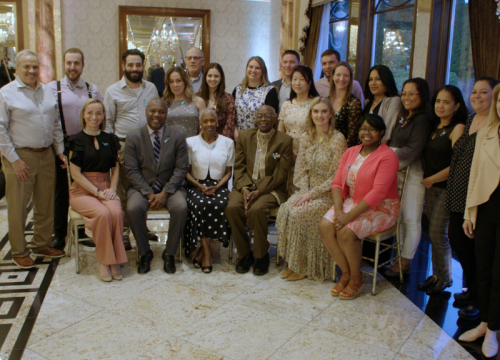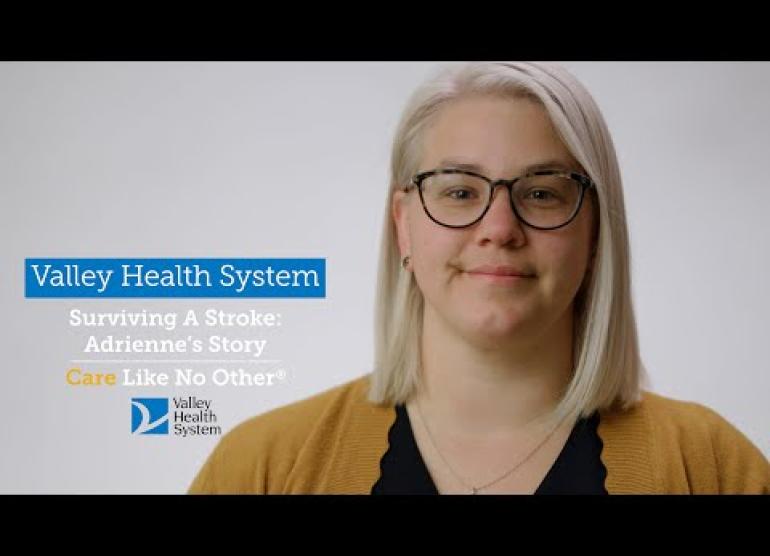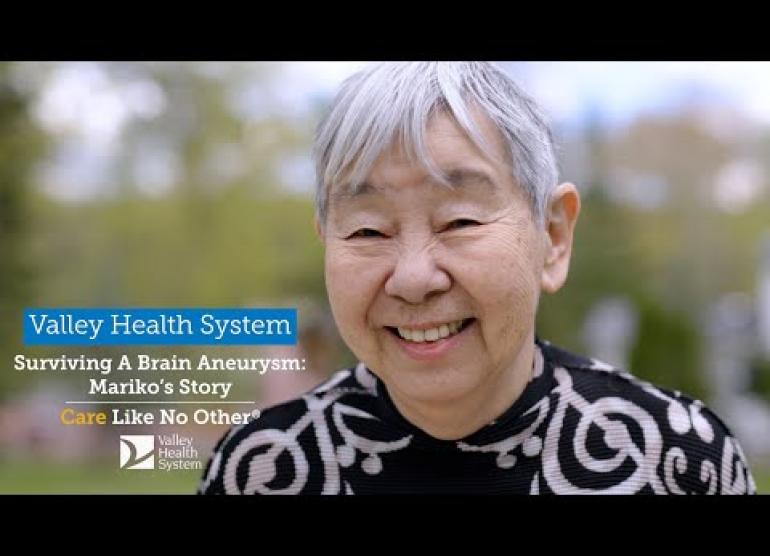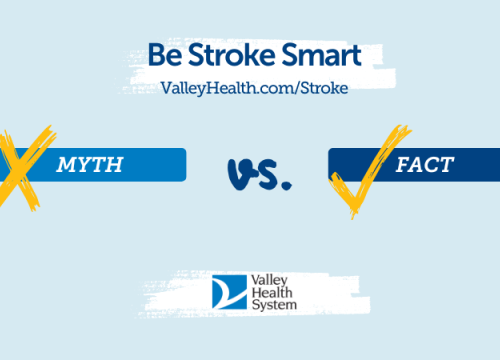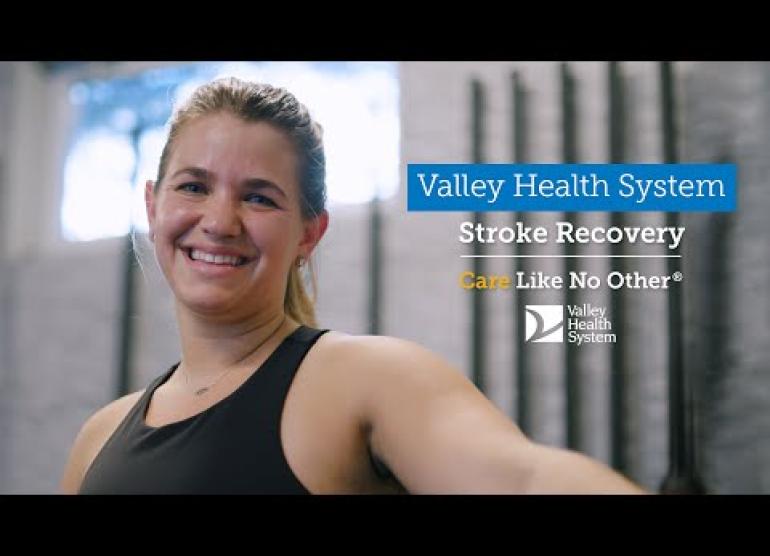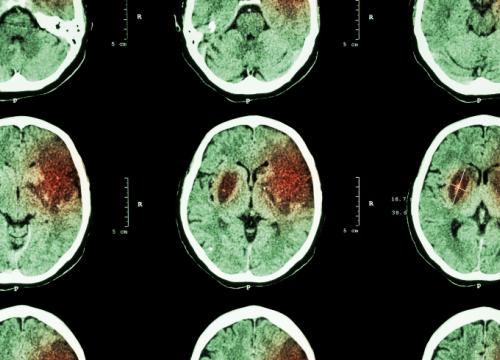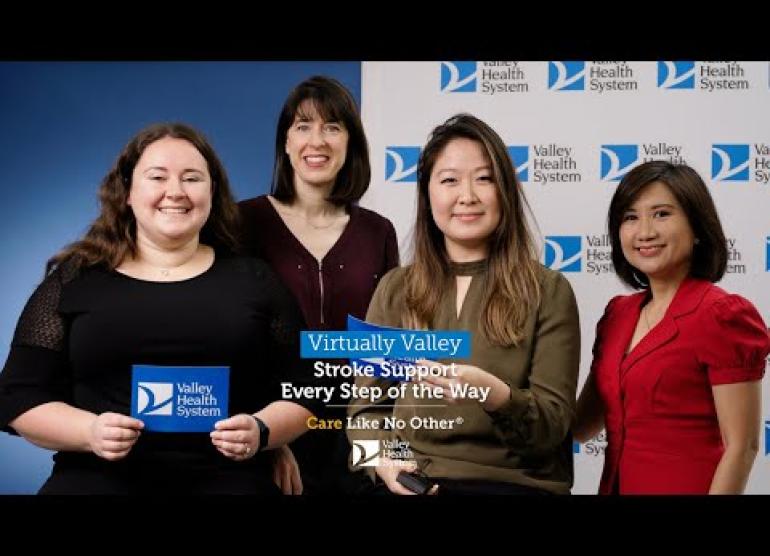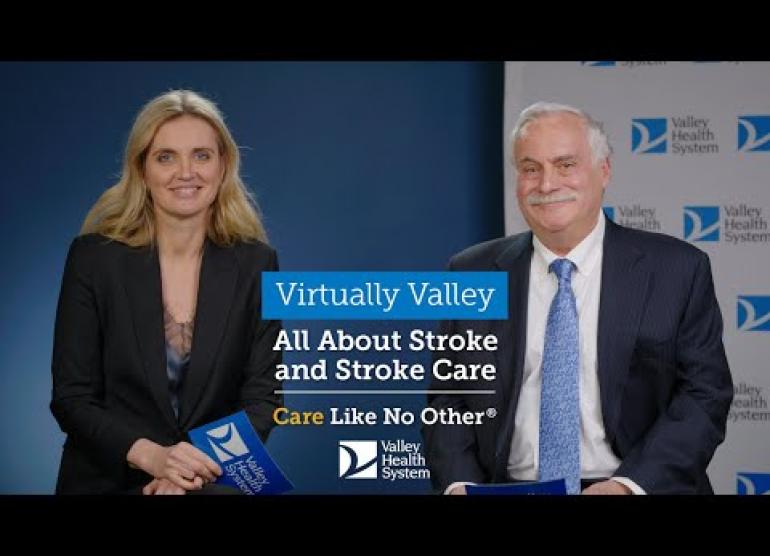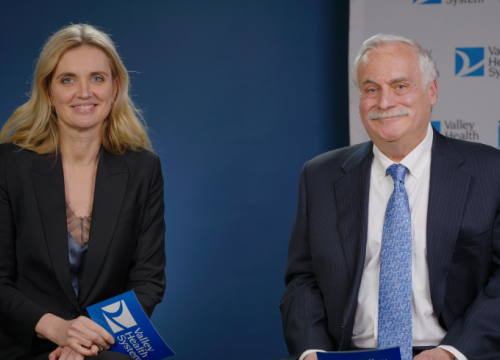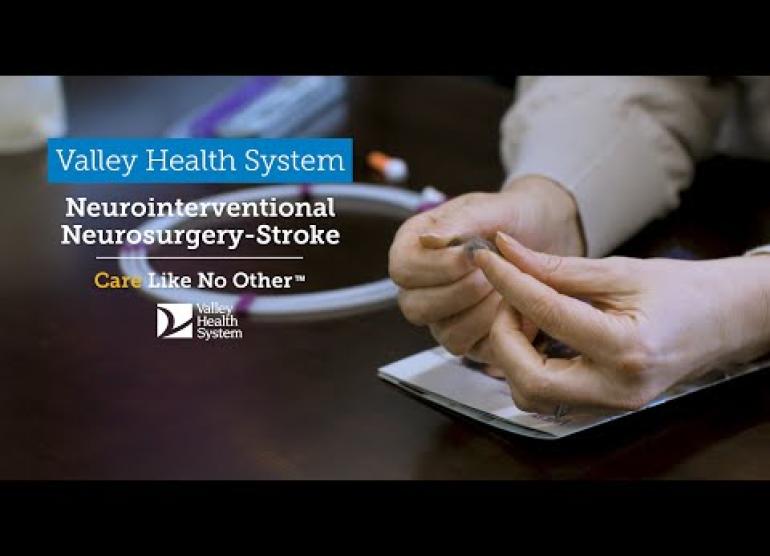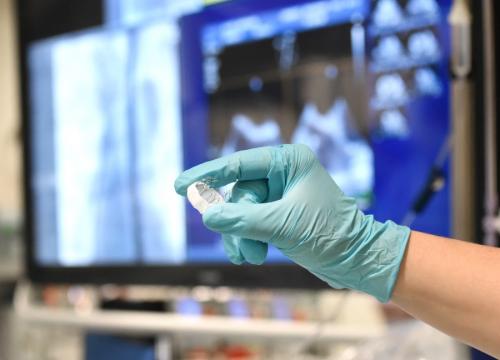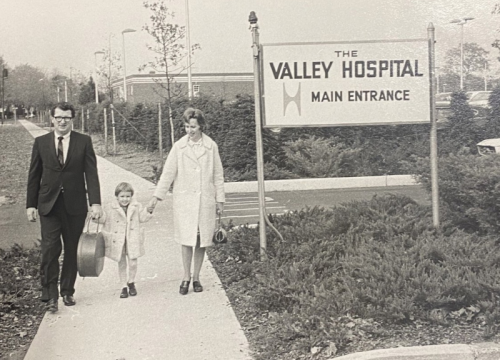If you need surgery for a sudden or serious neurological condition, turn to the specialists at Valley.
Our neurosurgeons perform advanced procedures comparable to those available at the largest medical institutions. They specialize in minimally invasive techniques that offer a number of benefits for most patients, including shorter hospital stays, less pain and faster recovery.
Brain surgery may offer the best chance of long-term relief or recovery if you have:
- A cancerous (malignant) or noncancerous (benign) brain tumor
- Weak or narrow blood vessels that are likely to burst (causing bleeding in your brain) or become blocked (depriving your brain of oxygen)
- A medical emergency such as a brain aneurysm or hemorrhagic stroke
- Facial pain resistant to medical treatment
The Valley Approach to Brain Surgery
It’s natural to feel nervous about having brain surgery. But today’s surgical tools and techniques are safer and more effective than ever before, and you’ll find them here at Valley. Your care team will be made up of specialists in the latest surgical advances, in a convenient and comfortable location close to home.
Because we offer a wide variety of procedures you might need, we can customize your treatment plan to reflect your personal preferences and goals. Instead of choosing a technique based solely on your diagnosis, we also consider factors such as your age, occupation, family responsibilities and hobbies.
This helps us identify which surgical treatment will offer the most benefit with the fewest long-term side effects. Our goal is to help you choose a treatment that works, without causing neurological symptoms such as weakness, memory loss, vision problems, trouble speaking or swallowing, or other challenges.
Whenever possible, we use minimally invasive surgical techniques performed through small incisions — or, in some cases, no incisions at all. Minimally invasive brain surgery offers excellent outcomes with:
- Less pain
- Less time in the hospital
- Fewer complications
- Faster recovery
Our neurosurgeons even use a hair-sparing approach, which means we don’t typically have to shave your head for brain surgery.
At Valley, we also offer guidance and support every step of the way during your journey. Our surgeons, nurses and other staff will take the time to answer your questions before surgery, so you feel confident and comfortable. And after surgery, we’ll connect you with programs and services designed to enhance your recovery.
Brain Surgery Techniques at Valley
No matter how rare or complicated your condition, you’ll find the treatments you need at Valley. We offer the full range of brain surgery procedures, including minimally invasive options that make surgery and recovery easier for you.
Our areas of expertise include:
- Open brain surgery: Your surgeon temporarily removes a small piece of skull (craniotomy) in order to gain access to your brain. In some cases, open brain surgery is the best way to remove a brain tumor, remove abnormal brain tissue, or repair a ruptured blood vessel.
- Endoscopic endonasal surgery: State-of-the art instruments and imaging support this minimally invasive, incision-free approach. Your neurosurgeon can remove a pituitary tumor (or another type of skull base tumor) through your nose.
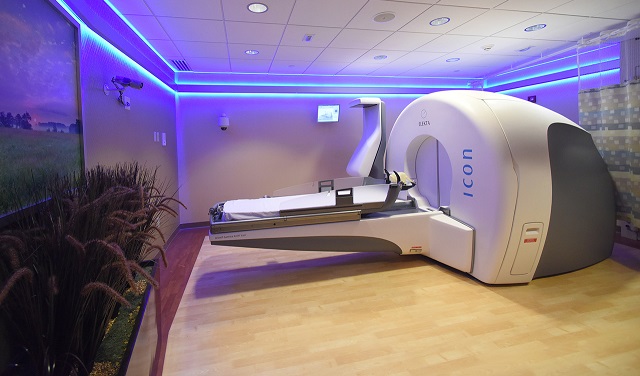 Gamma Knife radiosurgery: This noninvasive treatment sends targeted beams of radiation into your brain. It can help shrink primary, metastatic, or benign brain tumors and stop nerves from sending pain signals and prevent abnormal blood vessels from leaking blood into your brain. With Gamma Knife, we do not need to use the typical large metal device, called a stereotactic frame, to guide instrument placement and stabilize your head during surgery.
Gamma Knife radiosurgery: This noninvasive treatment sends targeted beams of radiation into your brain. It can help shrink primary, metastatic, or benign brain tumors and stop nerves from sending pain signals and prevent abnormal blood vessels from leaking blood into your brain. With Gamma Knife, we do not need to use the typical large metal device, called a stereotactic frame, to guide instrument placement and stabilize your head during surgery.- Endovascular neurosurgery: This approach uses a small incision through which your surgeon guides a flexible, hollow tube (catheter) through blood vessels into your brain. Once the catheter is in place, your surgeon can use it to dissolve a blood clot, prop open a narrowed artery or seal a weak blood vessel to prevent it from bursting.
- Microvascular decompression: Your surgeon moves any blood vessels putting pressure on the nerves that cause facial pain.
Research and Clinical Trials
Valley neurosurgeons are continually conducting research to advance treatment of brain conditions. Review our complete roster of clinical trials. You can also learn about our research program including our biorepository and review important information for patients.
The Okonite Research Center in Paramus, New Jersey, is Valley’s home for research and clinical trials. This state-of-the-art center provides a centralized, dedicated space for our teams to conduct leading-edge research.
Conditions Treated with Brain Surgery
- Acoustic Neuroma (Vestibular Schwannoma)
- Aneurysm
- Arteriovenous Malformation (AVM)
- Astrocytoma
- Brain Metastases (Metastatic Brain Cancer)
- Brain Tumor (Benign and Malignant)
- Carotid Artery Stenosis
- Cavernous Malformation
- Cerebral Hemorrhage
- Cerebrovascular Disease
- Chiari Malformation
- Epilepsy
- Glioblastoma
- Glioma
- Hemifacial Spasm
- Hemorrhagic Stroke
- Hydrocephalus
- Ischemic Stroke
- Meningioma
- Parkinson’s Disease
- Pituitary Tumors
- Skull Base Tumors
- Trigeminal Neuralgia
Why Choose Valley For Brain Surgery?
- Minimally invasive surgical approaches: The most advanced imaging technology and surgical tools enable our surgeons to perform minimally invasive surgery whenever possible. You may be able to go home the same day, and your recovery will be faster with less pain.
- Intraoperative MRI: Two operating suites in The Valley Hospital in Paramus (opening April 14, 2024) will be separated by an MRI allowing surgeons, particularly neurosurgeons, to pause during an operation, wheel the patient just steps away to obtain an MRI, then return the patient to the operating room. The intelligence obtained from the scan will help surgeons determine if additional surgical work is required before the procedure is completed.
- Awake brain surgery: To help preserve brain function in patients with certain brain tumors or epilepsy, we can safely conduct surgery while you’re awake and alert. Your surgeon will ask you questions during surgery and monitor your responses and brain activity. This helps ensure they’re not harming any part of the brain responsible for vision, movement or speech.
- Sophisticated brain mapping and surgical planning: Our brain surgeons use computer-generated images of the brain, taken before surgery, to create a 3D brain map. This helps them pinpoint the precise area of the brain they need to reach and find the best way to get there. For example, we can determine where (and how deep) to place surgical instruments without harming healthy brain tissue.
- Fluorescein-guided brain tumor surgery: Thanks to this special imaging technique, we can light up the part of your brain needing treatment. We’ll give you a harmless liquid solution (contrast agent) that causes cancerous tumors to glow. This makes it easier for your surgeon to see the size, shape and location of the tumor, along with any nearby critical structures they should avoid.
- High-tech, high-quality surgical care: We’re home to a state-of-the-art “hybrid” operating room equipped for both traditional brain surgery and endovascular neurosurgery. It allows us to use computer guidance systems, 3D imaging and video integration during every procedure. This helps ensure your surgery is as safe and successful as possible.
- Neuroscience intensive care unit (ICU): In our dedicated neuroscience ICU, we care for patients who have a serious neurological illness or are recovering from brain surgery. This unit is comprised of private rooms and is staffed by doctors, nurses and other providers with advanced training in critical care and neurological disorders



